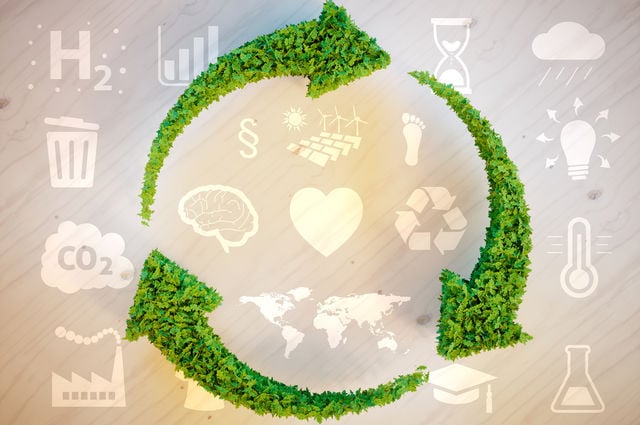Sustainability-driven legislation: setting the right conditions for hospitality?
21 experts shared their view
Legislation regulates the way we utilize natural resources, avoid pollution and harmful substances, manage waste and protect ecosystems and human rights. Supporting sustainability through the use of proactive legislation is nothing new. Rather than being a constraint to businesses and individuals, proactive legislation can eliminate competitive disadvantages and thus be an instrument paving the way to a successful and sustainable future (Berger-Walliser et al., 2016). In many cases, however, legislation is enacted as a last resort. In Germany, a new law on packaging makes it mandatory for the gastronomy sector to provide reusable containers as an alternative to single-use items from 2023 onwards. This is, arguably, a long overdue legislation based on a EU Directive. In a recent representative survey conducted by the German Packaging Institute (DVI) and World Wide Fund For Nature (WWF), 85% of respondents are in favor of introducing a deposit refund system for reusable containers. And while citizens around the globe view climate change as a major threat, the most recent report from the UNFCC warns that climate action plans put forward by nations ahead of COP26 are nowhere close to meeting the goals set in the Paris Agreement. Looking at legislative initiatives in your country, where do you see room for improvement? In which area under the sustainability umbrella do you see the need for more (or less) regulations? Can you share some best (or worst) practices?
Berger-Walliser, G., Shrivastava, P. & Sulkowski, A. (2016). Using Proactive Legal Strategies for Corporate Environmental Sustainability, Michigan Journal of Environmental & Administrative Law, 6(1), 1-27.
Central to Oceanic Global's mission is the desire to drive behavior change. We focus at the community level with grassroots action, industry level with business leadership, and at the policy level with legislative reform, and we need action at all three to truly create lasting change. Legislation is a critical tool for behavior change to encourage innovation in technology as well as to catalyze a market shift towards responsible consumption.
Policy is often the mother to invention as businesses and solution-providers creatively rise to meet the challenge of legislation put in place to regulate emissions, harmful materials, plastic consumption, waste management and beyond. However, without that nudge, the market may not otherwise trend towards what is healthy for all particularly if artificial barriers are in place or if false benefits of harmful practices are inflated.
We were also so excited to see the steps Germany is taking to support reusables! On that note and in the realm of single-use plastics, we are focused on supporting a host of bills at the federal, state and city level in the US as well as beyond (including helping businesses comply with plastic bans in Barbados and the Aeolian Islands in Itay). Here I will outline our US involvement:
- Break Free From Plastic Pollution Act (BFFPPA): Federal legislation to shift the burden of plastic cleanup responsibility to the big corporations that produce the waste, establish a nation-wide bottle deposit refund system, encourage reusable innovation, invest in waste management infrastructure, and regulate facilities to keep communities safe. This is seen as the "gold standard" for plastic legislation in the U.S. and it has just been reintroduced last week!
- Skip the Stuff: National campaign to get local legislation to require that the default for ordering online, food delivery, takeaway and pick up is to only give utensils and other accessories upon request! As such the default would be to not offer anything unless the customer chooses to ask for it. NYC and LA each have city-wide bills introduced our community Hubs are supporting.
- NY Bag Ban: State-wide ban on single-use plastic bags finally went into effect in October 2020, and there are still some loopholes the community is working through as the plastics industry puts up a fight to overturn the law. Does not yet apply to food delivery.
- NYC Straw Bill: City-wide ban on single-use plastic straws with some exceptions in place for communities with disabilities. Oceanic Global has been very involved since the initial drafting and introduction of the bill. We are now working with city council to ensure it is brought up for a vote and rolled out into effect.
- NYC Beverage Cup Bill: City-wide law dictating that food service establishments may not refuse the request of a customer who asks for a beverage to be served in a reusable container.
These pieces of legislation and more are needed at the national and global level! Every community and every business is unique, so it is understandable that there are different considerations and processes in each place. That said, a greater standardization of regulation as well as language is needed for us to achieve a state of unity in the way we address the issues of plastic pollution, climate change, and beyond. For that reason we are supportive of and engaging in multi-stakeholder discussions surrounding a UN Global Treaty on Plastics.
Learn more about the NYC bills at ReusableNYC.
Learn more about single-use plastics foodware policy in Surfrider's Comprehensive Foodware Policy Toolkit!


